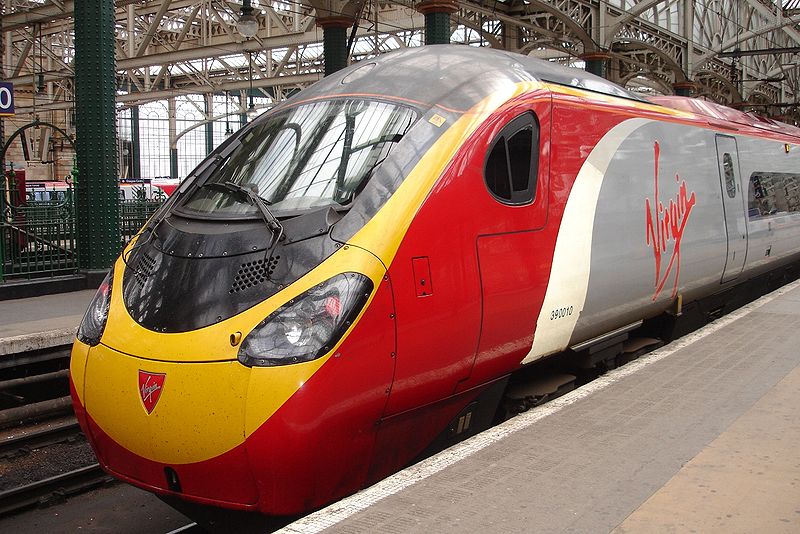The east coast rail route is to be put back into private ownership after a prolonged spell in state hands, the government will confirm this week, as ministers set out plans to restore a franchise system paralysed by the west coast fiasco.
The transport secretary, Patrick McLoughlin, is to outline plans to seek tenders for the London-Edinburgh service more than three years after it was nationalised after National Express reneged on a £1.4bn contract for the route. McLoughlin’s move will stymie Labour’s promise to keep the east coast service publicly owned if it wins the 2015 general election.
The decision to accelerate the return of one of Britain’s most prestigious rail routes to the private sector is expected to revive the rivalry between Virgin Trains and FirstGroup, which competed for the west coast franchise last year.
That contest ended in victory for Virgin after it successfully challenged the government’s decision to award the contract to FirstGroup, forcing the Department for Transport to suspend its entire franchising programme, reports The Guardian.
While allowing Virgin Trains to continue running the west coast route was seen as a legally fraught solution, the operator is now expected to be handed a further two-year extension – until late 2016 – to run the lucrative service as McLoughlin prioritises the east coast line.
McLoughlin will spell out plans for letting 10 of the 16 franchises scheduled to expire before May 2015 but whose future was thrown into chaos by the west coast fiasco.
He will signal that the railways are “reopening for business” in an announcement, expected as early as Tuesday. Sources say there will be a “holistic programme” for the network, sending a clear message to investors of support for privatisation.
The biggest immediate prize will be the east coast service, currently run by the state-owned Directly Operated Railways, which paid more than £600m in premiums and profits into government coffers in the three years to April 2012. The co-owner of Virgin Trains, Sir Richard Branson, has a renewed desire to run the line, for which he has already twice bid and lost.
FirstGroup already runs franchises that use stations on the route and is certain to compete for the contract.
National Express, only just recovered from consequences of the east coast pull-out, has ruled itself out of contention and participation of European state-backed firms is also in doubt. France’s SNCF was massively outbid for the west coast service last year and its peers may believe there is better value in other markets.
An ambitious timetable to re-let most of the rail network on long-term franchises during this parliament was thrown into disarray by the west coast row.
The fallout not only left the future of a key rail route unresolved but also raised fundamental questions about the reliability of the franchising system, where the right to operate trains exclusively on specific routes is leased to private sector companies. On the most lucrative routes, such as east coast and west coast services, the leases include the payment of significant premiums – or excess profits – to the government.
However, government confidence in the system was bolstered by a review published in January by Eurostar chairman Richard Brown, which found that franchising was fit for purpose and crucial errors were limited to the west coast only. Brown proposed the programme be restarted as soon as possible, but that contracts be tailored to individual rail routes.
The government may consider management contracts rather than franchises which expose operators to more risk but have greater earning potential. Such a deal was signalled in January for the new combined Southern, Thameslink and Great Northern super-franchise, where the winning operator will have to deal with the redevelopment of London Bridge station by Network Rail.
A similar solution may be offered on the London-Swansea Great Western franchise, currently operated by FirstGroup with an extension to 2015 being negotiated, as disruption looms from the Crossrail project, resignalling, electrification and the introduction of high speed InterCity trains.
Richard Brown told the Guardian last week that an early announcement on franchising would be “good news” and said the DfT had been “diligent in following his recommendations”, stressing that it was essential to space out franchise competitions.
“Trying to let too many franchises in too short a period is not helpful to the industry – not just the train operators, but leasing companies and manufacturers – and the DfT can’t cope.”
The DfT’s interim head of franchising, Pete Wilkinson, appears to have succeeded in getting the troubled department to produce a timetable ahead of schedule, although it is unclear if it has yet decided how to replace the faulty risk modelling which led to the collapse of the west coast process.
Clearing the rail franchise backlog will allow the DfT to focus on other looming procurement headaches, notably the £1bn rolling stock contract for Crossrail.


